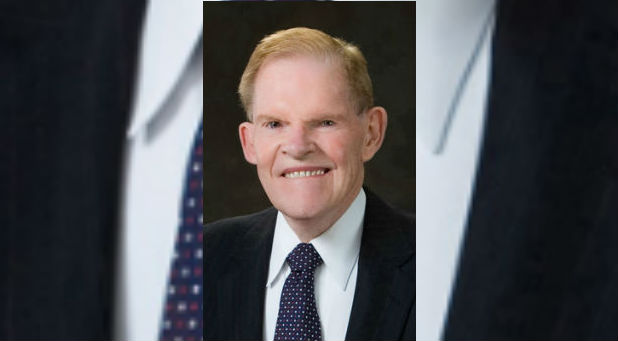One of the World’s Foremost Experts on Biblical Preaching Dies
Haddon Robinson, one of the foremost experts on biblical preaching, died over the weekend. He was 86.
“He was a wonderful man. He was ready to go,” daughter Vicki Hitzges says. “I prayed God would take him. I was so crazy about him. His kindness. His love for God. His put-downs that still make me laugh. What a loss indeed.”
Robinson was well-esteemed in the academic community. He served as interim president at Gordon-Conwell Theological Seminary, where he taught preaching. He previously taught at Dallas Theological Seminary and was president of Denver Seminary.
“We continue to thank God for Haddon’s legacy and formative impact on the Gordon-Conwell Theological Seminary and the global church,” Dr. Dennis P. Hollinger of Gordon-Conwell says. “Though we mourn his loss, we find hope in the power of the resurrection.”
Robinson wrote more than a dozen books, including Biblical Preaching. His articles appeared regularly in Christianity Today, Bibliotheca Sacra, Moody Monthly, the American Lutheran Magazine, Leadership and Decision and in the Our Daily Bread devotional. He also edited the Christian Medical Society Journal and the Theological Annual, and served on the editorial boards of Preaching and Christianity Today, according to his obituary on the Gordon-Conwell website.
Southwestern Assemblies of God University professor Jeff Magruder was one of Robinson’s students. Robinson also served as Magruder’s doctoral adviser. Magruder recalled a class with Robinson like this:
I can remember hearing the great teacher of preaching Haddon Robinson say that he had done a study of the sermons of Charles Spurgeon, the great prince of preachers, from an earlier century, and Spurgeon, Haddon claimed, was assuming something in his sermons (that is after having done this this analysis of all of the Spurgeon sermons). Robinson said to our seminary classroom, “Spurgeon assumes something.” He assumed that the audience feels guilty. Preaching in the time in which he did (Victorian England), it made sense that he assumed that his audience feels guilty. Most people probably were either trying to be Christian, thought they should be Christian or planned on one day becoming a Christian, and of course, many identified with being Christian. So he could assume that what they were doing or failing to do was all in light of Christianity.
Robinson then turned to our seminary class and said, “We can no longer make that assumption. We can no longer assume that people are aware of their need for forgiveness.” That means that in our preaching, we need to show people and reveal to people that they are indeed in need of forgiveness. I would like to make a few suggestions about ways you can do this. First, you can point out how important it is that our motives are right, not just your actions. Second, zero in on their passions. What is it they really get excited about? Are they things that are noble or the things that are embarrassing? Notice the way that Jesus in the Sermon on the Mount doesn’t just talk about actual expressions of the law that are found only in behavior, but He talks about motive. He talks about what’s going on in the inner parts of a human being, and I think what you’ll discover is that even if someone who’s unchurched is a good person who pays their taxes and doesn’t cheat on their spouse, when matters of the heart are discussed, they’ll discover that they may be more need of forgiveness than they realized.
Haddon is survived by his devoted wife of 66 years, Bonnie; Hitzges, a motivational speaker; his son, Torrey Robinson, senior pastor of the First Baptist Church of Tarrytown, New York; Torrey’s wife, Sue, and two grandsons. {eoa}




























































